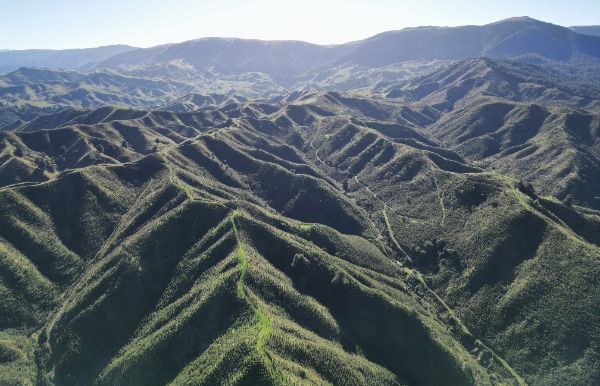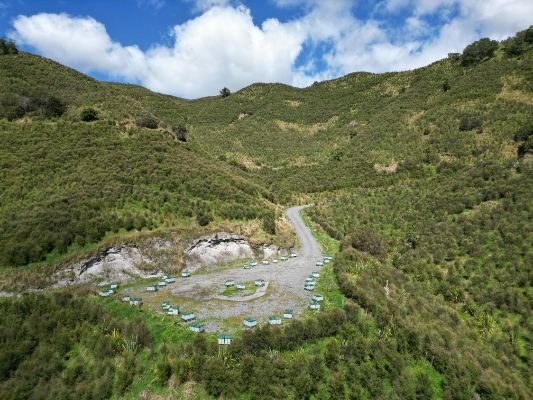Sweet Upside To Indigenous Carbon Investment

With companies around the globe actively looking for high-integrity ways to lower the amount of carbon they produce and using carbon markets to offset their emissions, New Zealand-headquartered entities are showing interest in indigenous forestry investment opportunities with inherent capacity for carbon sequestration.
Cornerstone environmental, social, and governance (ESG) objectives are becoming more important for corporate businesses in response to mounting pressure from investors, customers, employees, and stakeholders.
Specifically, the carbon footprint of corporate operations is being widely challenged and Duncan Ross, Bayleys Auckland said with New Zealand placing carbon offsetting at the heart of its climate change strategy, corporates here are scoping offset options to mesh with their sustainable strategies.
“ESG is no longer just a buzz phrase, it’s underscoring long-term sustainable value directives within companies.”
Ross, along with colleague Pete Stratton of Bayleys Ruapehu, is marketing a rural property with scale in the Rangitikei district that offers a passive, green-based investment opportunity leveraging both indigenous carbon credits and revenue from high-grade Mānuka honey.
Makopua Station, at 369 Makopua Road, Taihape is a 1,657-hectare landholding that was converted from hill country pastoral to Mānuka forest by owners, Tweeddale’s Honey, one of the largest family-owned beekeeping and honey operations in New Zealand, supplying domestic and international markets.
Taihape-based and founded in 1945, fourth-generation company Tweeddale headed by Don and Conchita Tweeddale, developed the formerly pastoral land into a high-grade Mānuka honey support block planting around 4 million early and late-flowering Mānuka trees over the last seven years.

This was done in conjunction with the Afforestation Grant scheme and the One Million Trees scheme and it’s seen 1,417 hectares planted to date, with the land an important component of Tweeddale’s broad operation which has its main production and operational facility around 30km away.
Circa-766 hectares of the permanent native forest is already registered under the Emissions Trading Scheme (ETS), with a further 652 hectares in the registration process.
Ross said that with advancing age, the principals of the Tweeddale legacy business are looking to release some equity from their asset portfolio for their children, while still enabling the successful business to continue.
“They are very experienced in beekeeping skills for maximum honey production, and with hive stocking on Makopua Station set to progressively increase as the trees mature, the preferred option is for Tweeddale Honey Limited to retain the apiary rights for the property allowing them to access the property through a Beehive Placement Agreement,” he explained.
“The new landowner could opt for either a percentage cut of the wholesale value of the honey collected off the land, or agree to a hive placement fee, benchmarked against market values.
“Alternatively, Tweeddale’s Honey would consider selling the property outright.”
With the property planted in Mānuka trees, Ross said Makopua Station presents a compelling investment opportunity, with both genuine long-term carbon sequestration and hive placement revenue offtakes available to a new owner.
“Tweeddale’s Honey is dedicated to providing quality natural and fully traceable honey, with all its produced honey tested and certified by Analytica Laboratories,” he said.
“For a new owner, the honey/hive side of the equation would bring in passive income, underpinned by the Tweeddale’s ongoing commitment to the high-grade Mānuka honey market.
“As the Mānuka matures, future annual honey production from the Station property is forecast at between 60,000 to 72,000kg of high-grade UMF Mānuka honey, with early indications looking promising with the current season’s honey undergoing UMF analytics.
“A professional ETS consultant could be engaged to handle ETS registration, field measurements of the registered forest, and to complete annual returns for the carbon storage element of the property.”
Ross said there are multiple dwellings, woolsheds and farm infrastructure in place across the property, and a modest supplementary pastoral lease allows 3,000 ewes to be run on the property, without impacting hive placement or carbon revenues.
“Makopua Station presents an opportunity for a progressive investor to secure a large-scale commitment to a sustainable, environmentally-conscious and returns-based future.”
Tenders for Makopua Station close with Bayleys Auckland on Friday, 26th May.
Click here for more information on this listing.


 Science Media Centre: What Goes Into Making Our Seasonal Flu Jab? – Expert Q+A
Science Media Centre: What Goes Into Making Our Seasonal Flu Jab? – Expert Q+A The Document Foundation: Celebrating 20 Years Of The OASIS Open Document Format (ODF) Standard
The Document Foundation: Celebrating 20 Years Of The OASIS Open Document Format (ODF) Standard Maritime Union of New Zealand: Maritime Union Raises Serious Concerns Over Aratere Ferry Removal
Maritime Union of New Zealand: Maritime Union Raises Serious Concerns Over Aratere Ferry Removal Ferry Holdings Limited: Decommissioning Of The Aratere Ferry
Ferry Holdings Limited: Decommissioning Of The Aratere Ferry Broadcasting Standards Authority: Inaccurate 1News Reporting On Football Violence Breached Broadcasting Standards
Broadcasting Standards Authority: Inaccurate 1News Reporting On Football Violence Breached Broadcasting Standards Better Taxes for a Better Future: $1b Cut In Budget Operating Allowance ‘Unnecessary And Damaging’
Better Taxes for a Better Future: $1b Cut In Budget Operating Allowance ‘Unnecessary And Damaging’